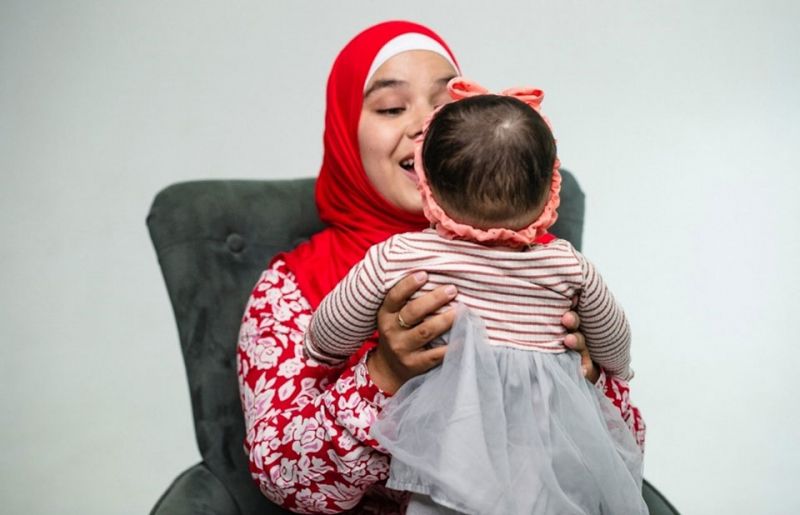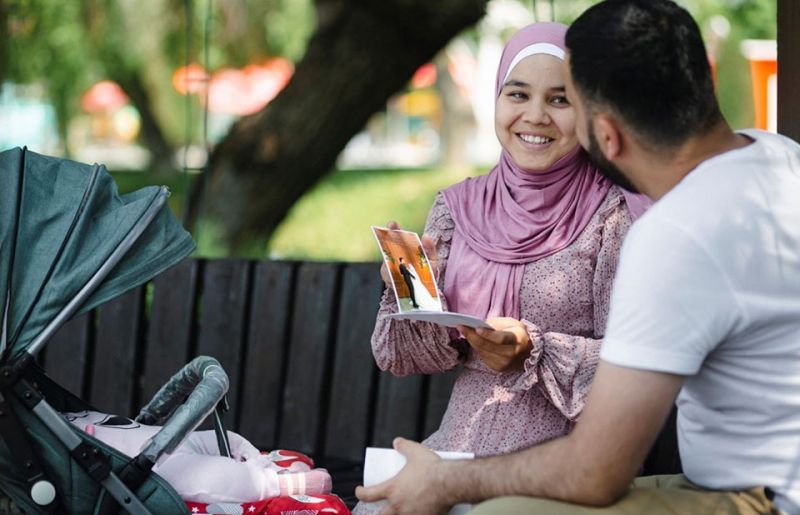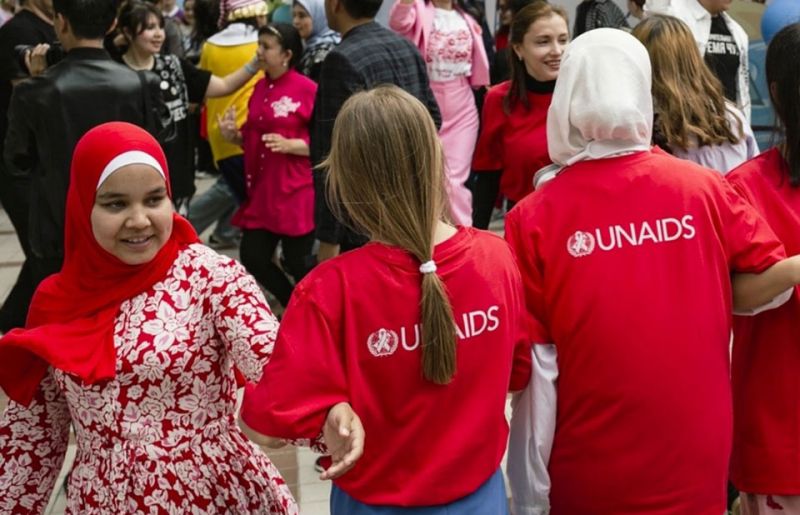Ajima has been living with HIV since childhood, was abandoned by her parents and raised by her grandmother.
Today, she is recognised as an inspirational community leader in the HIV response, in part for being the first young woman in Uzbekistan to publicly test HIV positive and for playing a key role in eradicating stigma.
“I am strong, I have a bright future and I will achieve my goals,” Ajima said.
She has faced both positive and negative reactions since coming out. Through it all, Azima has remained a committed activist. She is especially grateful for her supportive community of peers, a UNICEF-supported group of children and young people living with HIV.
“In the end, the energy of the people who supported me was so strong that I was able to overcome the criticism of others,” she said.
As a peer educator, Ajima works tirelessly to raise awareness about HIV.
Azima is currently studying psychology at Fergana State University, a career choice she made thanks to the encouragement of her grandmother and inspiration from a psychologist who worked in her support group.
Because she is on HIV treatment, Azima cannot transmit the virus to her husband, and a few months ago she gave birth to an HIV-free baby girl.

She is grateful to her family: “My husband has always supported me,” Ajima says.

Azima's story is emblematic of the progress being made in Uzbekistan's fight against HIV. In Uzbekistan, antiretroviral therapy is available free of charge to all who need it, and the country is also working to ensure that all women living with HIV receive treatment in a timely manner and that all babies are born HIV-free. According to the Republic of Uzbekistan AIDS Control Center, the proportion of pregnant women receiving antiretroviral therapy to prevent vertical transmission of HIV has been around 98 percent since 2016.
“In 2023, the vertical HIV transmission rate was 0.2 percent. We aim to reduce this figure to 0 percent. The Republic of Uzbekistan is on the verge of obtaining an international certificate of elimination of mother-to-child HIV transmission,” said Bakhrom Iganberdiyev, director of the AIDS Center of the Republic of Uzbekistan.
The country has approved the “Roadmap for the Implementation of Measures to Achieve Verification of Elimination of Mother-to-Child Transmission of HIV in 2024-2026.” The roadmap will be implemented with the participation of all partners and will help Uzbekistan achieve its goals and obtain verification of elimination of vertical transmission of HIV. An effective HIV response is a priority for both the Government of Uzbekistan and civil society.
However, the HIV response in Uzbekistan faces several significant challenges, particularly with regard to HIV prevention, that are deeply rooted in social norms and institutional inequalities.

According to a recently released gender assessment report for Uzbekistan:, Women's decision-making power is restricted, forcing many women to rely on male relatives for important life decisions, including health care decisions.
Despite government initiatives and legislative efforts to address gender-based violence, underreporting remains a significant problem. The prevalence of early and arranged marriages also limits women's independence, depriving many women of educational and economic opportunities, and preventing them from receiving comprehensive sexuality education. Cultural norms limit open discussion of reproductive health and prevention in many social contexts, including family and educational settings.
As a result, the latest survey finds that only 14% of women aged 15-49 have comprehensive knowledge about HIV. This figure drops to 10% among young women aged 15-25. “Tackling these systemic issues requires comprehensive efforts to promote gender equality, ensure access to sexual and reproductive health and rights, and empower women economically. UNAIDS is working with partners to improve access to education and enable women to reach their full potential,” said Eamonn Murphy, UNAIDS Regional Director for Asia and the Pacific, Eastern Europe and Central Asia.
Azima has stepped up her advocacy work, noting that openness and education are key to combating stigma and promoting access to prevention, testing and treatment. She advises young women to disclose their HIV status to their partners early in relationships and stresses the importance of treatment adherence and mutual support within families.
Azima continues her journey of breaking stereotypes, raising awareness and continuing with courage and determination. She embodies the lesson that a successful HIV response can be community-led.

